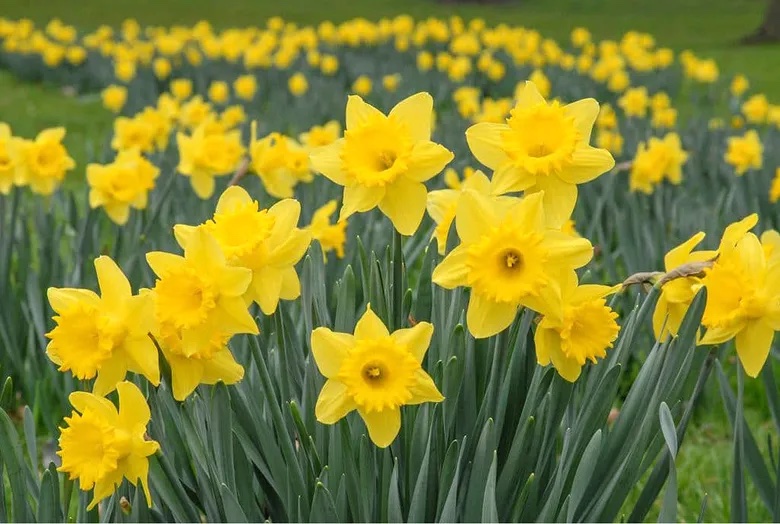
The change of seasons is an ideal time to assign creative writing, especially poetry. Connecting feelings with themes of change and hope can inspire even the most reluctant student to take a chance at waxing poetic. While each season has natural changes to anticipate, something about sighting the first flowers of spring makes anyone smile at the relief of longer days of sunshine and warmer temperatures ahead. Mother Nature has given us daffodils early in the season and kept them safe from deer and squirrels. William Wordsworth’s poem, “I Wandered Lonely as a Cloud,” celebrates the unexpected sighting of daffodils. What do your students look forward to when the seasons change? How can the change of seasons be used as a metaphor? Does the change of seasons mark the beginning, or the end?
I Wandered Lonely as a Cloud, by William Wordsworth:
I wandered lonely as a cloud
That floats on high o’er vales and hills,
When all at once I saw a crowd,
A host, of golden daffodils;
Beside the lake, beneath the trees,
Fluttering and dancing in the breeze.
Continuous as the stars that shine
And twinkle on the milky way,
They stretched in never-ending line
Along the margin of a bay:
Ten thousand saw I at a glance,
Tossing their heads in sprightly dance.
The waves beside them danced; but they
Out-did the sparkling waves in glee:
A poet could not but be gay,
In such a jocund company:
I gazed—and gazed—but little thought
What wealth the show to me had brought:
For oft, when on my couch I lie
In vacant or in pensive mood,
They flash upon that inward eye
Which is the bliss of solitude;
And then my heart with pleasure fills,
And dances with the daffodils.